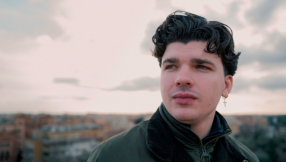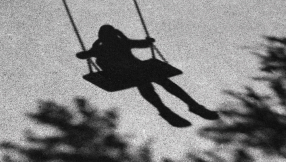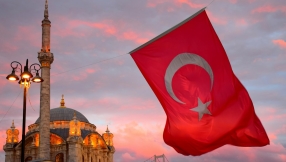At least 15 people including a Catholic priest were killed in Bangui, Central African Republic (CAR) on Tuesday, when unidentified gunmen opened fire on a church service.
The gunmen attacked Notre Dame de Fatima church, launching grenades and gunfire on the congregation during its morning mass.
'Filled with panic, some Christians began to flee until bullets and grenades began to fall in the parish grounds, trapping those who remained in the compound,' Moses Aliou, a priest at the church, told Reuters. Trapped congregants were forced to escape the area through a hole made in the church wall by police.
At least15 deaths have been confirmed according to morgue officials at Bangui's Community Hospital and human rights group Doctors Without Borders, while at least 60 were injured in the violence. It remains unclear how many were killed in the church itself or in the ensuing conflict that followed.
A priest named Albert Toungoumale Baba was among the dead. Thousands of angry protesters later carried the priest's body, covered by a sheet and laid on a stretcher, to the presidential palace, according to a local witness.
The attack took place on the edge of Bangui's majority Muslim PK 5 neighbourhood, where 21 were killed last month during clashes between security forces and criminal gangs. Notre Dame de Fatima church was previously attacked by gunmen in 2014, when worshippers and a priest were again the victims.
Conflict originally erupted in the CAR in December 2012, when several rebel groups, mainly Muslim militants, formed a coalition known as Séléka and in 2013 overthrew the CAR's then-president Francois Bozize. In retaliation, several 'anti-balaka' (meaning 'anti-machete') groups formed to combat the rebels. Some of these militias – predominantly comprising Christians – began attacking Muslims in revenge. Thousands have since been killed or displaced in the ensuing violence.
The International Criminal Court has previously concluded that there is 'a reasonable basis to believe that both the Séléka and the anti-balaka groups have committed crimes against humanity and war crimes including murder, rape, forced displacement, persecution, pillaging, attacks against humanitarian missions and the use of children under fifteen in combat'.
Additional reporting by Reuters













